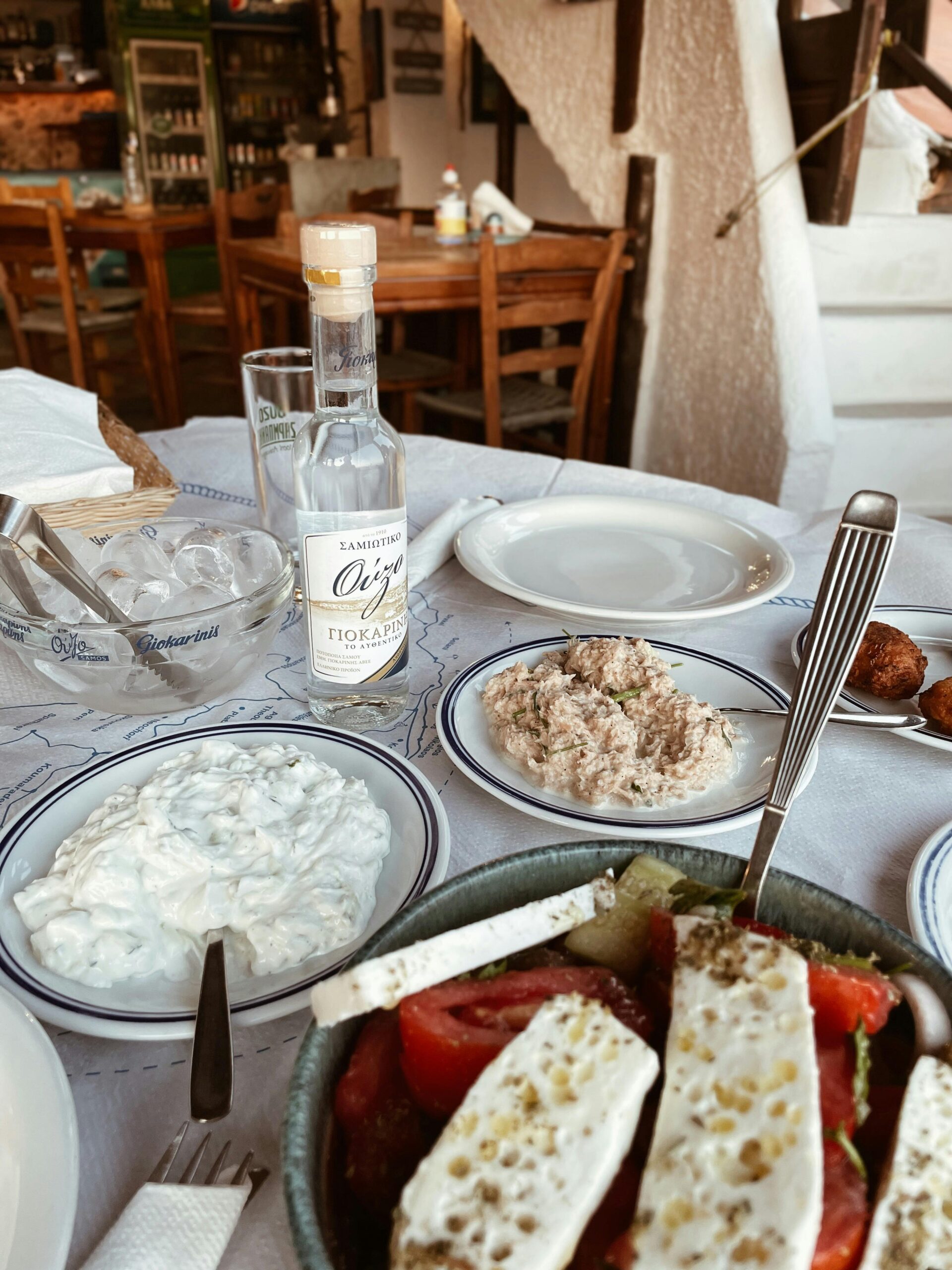
Learning How to Cook While Abroad
By: Nate Chiang (CAS + Wharton ’28)
GRIP: Eurolife FHH in Athens, Greece
Yasu! It is hard to believe that my time at Eurolife FFH is coming to an end, and I am extremely grateful for the support everyone on the Strategy Team at Eurolife has provided me. Every morning, my coworkers and I greet each other with a lively “Kalimera!” and my boss buys koulouris, round bread rings coated in sesame seeds, for everyone to share. We have been preparing for Eurolife’s annual strategic dialogue session in which the firm considers the Greek and global macroeconomic environment in order to identify future opportunities for Eurolife.
During my time interning in Greece, I am happy to have witnessed recent macroeconomic developments that have positively benefited the country and reflect Greece’s recovery from its economic crisis ten years ago. In 2015, Greece defaulted on its payments to the IMF and its departure from the Eurozone seemed imminent while many, including my coworkers, spent hours waiting in line at ATMs to withdraw their savings. Being able to hear about the effects of capital controls firsthand from my colleagues complemented what I had studied in the Huntsman First-Year Seminar and underscored the significance of dialogue and social considerations when imposing austerity measures to me.
Today, Greece is seeing record-high employment rates, upgrades in its investment-grade credit, falling borrowing rates, and one of the highest growth rates in Europe. Greece’s structural reform, disciplined fiscal consolidation, and tax evasion crackdowns now inspire other economies like Germany and France whose growth rates now lag behind the agility of the Greek economy.
Outside of work, I have also been able to immerse myself into Greek culture by learning more about its rich history, music, and cuisine. One Saturday, I woke up extra early in order to visit the Acropolis and avoid the 100+ Fahrenheit heat. Last weekend, I attended a concert that featured Valeron, a Greek DJ that combines house music with Greek and Mediterranean traditional instruments, such as oud and bouzouki.

Although I had limited cooking experience back home in the States, I wanted to participate in a local cooking class because I wanted to learn more about Greek culture. During the class, I learned how to make dolmades (stuffed grape leaves), spanakopita (a spinach and feta cheese pie), and roasted stuffed eggplant. I also hoped that taking the cooking class would improve my culinary skills. Although I used to rely on food delivery services and eating out, I am currently utilizing my apartment’s kitchen to cook most of my meals. I feel like this has been one of the most significant components of my experience living abroad because I have learned to be much more independent. If I had stayed at home this summer, I doubt I would have been as involved in the kitchen and learned how to cook.
On Fridays, I like to shop at my local farmers market, called a laiki, before work and find fresh vegetables and fruits. As a result of this, a lot of my recipes include seasonal Greek staples like eggplants, cucumbers, tomatoes, lemons, cherries, and apricots. One thing that I had noticed is that measuring cups and devices are not commonly sold in stores here, encouraging me to eyeball everything. I feel like this has given me a sense of liberty to control what I make based on my own tastes and preferences: a stark contrast to American recipes that often dictate precise measurements. While I am sad to leave Greece, I am excited for the new school year and to share my new recipes with my friends.